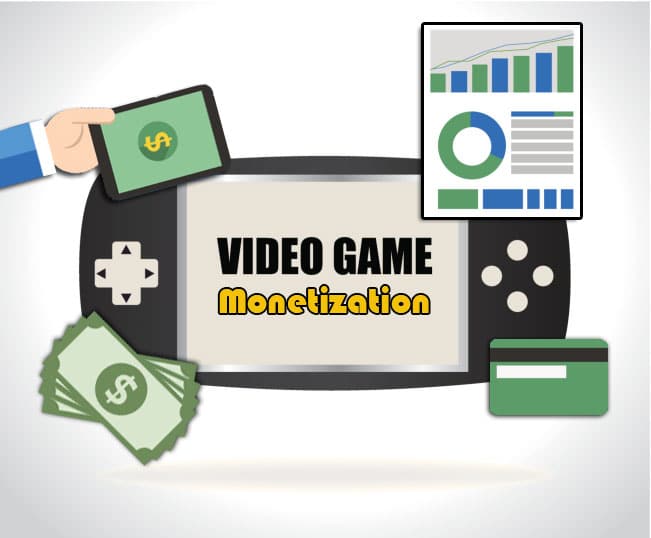I miss the good old days when we could just buy games and play it uninterrupted. We got the whole content at asking price! Nowadays we have to pay for an unfinished product from most developers. Only through purchasing “optional DLC” do we finally get the game in its finished state. This isn’t the golden age of gaming, but it’s certainly the age when game companies dig for gold!
To give an example, I still remember playing Deus Ex: Mankind Divided. Despite relatively enjoying the game, I feel as though I was cut short. As quite a large portion of the game’s content was locked behind a pay-wall under the guise of expansion packs. Ultimately what I got was a product that prioritized making money out of its consumers for the least amount of effort possible.
And that game was launched late of 2016. It’s only gotten worse since then.

Now don’t say that I’m entitled. I get it; developers and publishers need to make money. But do they really have to resort to shady practices to get it? All I want is to get the advertised content in full without scummy business practices. Is that so hard?
Bethesda, EA, and Activision are some of the most notorious gaming companies who are known for this. Not only do we have to worry about incomplete games being released at launch date, with the remaining content being sold as DLC. But we also have to worry about loot boxes and microtransactions.
With this in mind, gamers need to be really picky on which games they should throw their cash at. Contrary to what developers say, they’ll only ever really listen to money. And if they’re profiting from these practices, then the mechanics were working as intended.

These kinds of practices can be difficult to see through. Sometimes they’re so manipulative that you don’t even realize you’re a victim till you’ve spent half of your life’s savings.
One of these practices includes getting a player to invest a lot of hours into a game before increasing the grind. As one former CEO of EA puts it, for example: after six hours of Battlefield V, if you’re low on ammo and the game asks you for a dollar to reload you’re not as price-sensitive at that time. But this builds up as you progress. You keep investing more in the game. And before you’ve known it, you’ve spent more than hundreds just for the sake of reloading.
The second thing and this is a point that I think might be lost on many, is a big and substantial portion of digital revenues are microtransactions. When you are 6 hours into playing Battlefield, and you run out of ammo in your clip, and we ask you for a dollar to reload, you’re really not very price sensitive at that point in time. And for what it’s worth the COGS on the clip are really low, and so, essentially what ends up happening and the reason the play first pay later model works so nicely, is a consumer gets engaged in a property they might spend 10, 20, 30, 50 hours on the game, and then when they’re deep into the game they’re well invested in it, we’re not gouging, but we’re charging, and at that point in time the commitment can be pretty high. As a personal anecdote I spent about $5000 calendar year to date on doing just this thing, this type of thing, on our products and others, I can readily attest to how well it works. But it is, it’s a great model and I think it represents a substantially better future for the industry.
John Riccitiello
Once you’ve invested heavily into a game, you’re not gonna want to back out. Why would you? You’ve already spent this much. Are you ready to just drop the whole game and admit it was a waste of time? Most people wouldn’t want to do that.
Case in point, these type of games are designed with monetization in mind. It preys on your inability to say no by slowly stripping your defenses until you think it’s normal. It’s disgusting, it’s scummy, and it’s underhanded but it’s real. To these people, all we are to them are cash cows to be exploited and used. All that matters is our money, not our trust. They don’t care about long term paying customers. They want the addicts producing them as much cash in the shortest amount of time possible.

Of course, let’s not forget about loot boxes. Which is an entirely different but similar pile of shit.
Once the gaming industry has found out this amazing practice, it’s been the bane for gamers all around the world. Sure, you could simply not purchase it. But I hope you enjoy grinding for hours on end with tedious tasks in order to get the smallest chance of getting the item that you do want.
What loot boxes do, is that it also gives you a couple of freebies; a chance to try out the virtual slot machine before you spend any cash on it. But as soon as you see the kind of rare items you’ll get, you’ll very much be tempted to spend a couple of dollars on it. And you’ll have to keep spending and spending because there’s only a percentage of a chance you’ll get something you’re looking for.
Many have equated this to gambling and for good reason, with the world’s countries even looking into the matter. With all the opposition, you’d think it’d be about time that loot boxes were permanently banned. But somehow even with all the odds stacked against them, EA still got the UK to consider loot boxes in FIFA as “not gambling” despite their extremely weak “surprise mechanics” defense. Which just screams of bribery and corruption. Thankfully, other countries do seem to be closing in on them. And it’s only a matter of time to see if government officials are going to do they’re damn jobs or bend over for cash like the stereotypical whores they are.

It’s honestly a shame to see gaming in the state that it is today. We have so many great video games coming up this year and the next. And it’s all ruined by corporate greed and their scummy business practices.
So what can you do to help stop it? With your wallet, really. Don’t buy this shit. Put your foot down. Tell these corporations what you really think of their “surprise mechanics” by simply not buying their game in full. But unfortunately, there’s always some idiotic schmuck out there spending their credit cards and giving these people a reason to keep fighting. At the end of the day, it’s ultimately up to you, the consumer, if you’re going to let these kinds of practices affect your experiences in games and your bank account.
Sources: YongYea, Baekdal Plus, Game Theory
